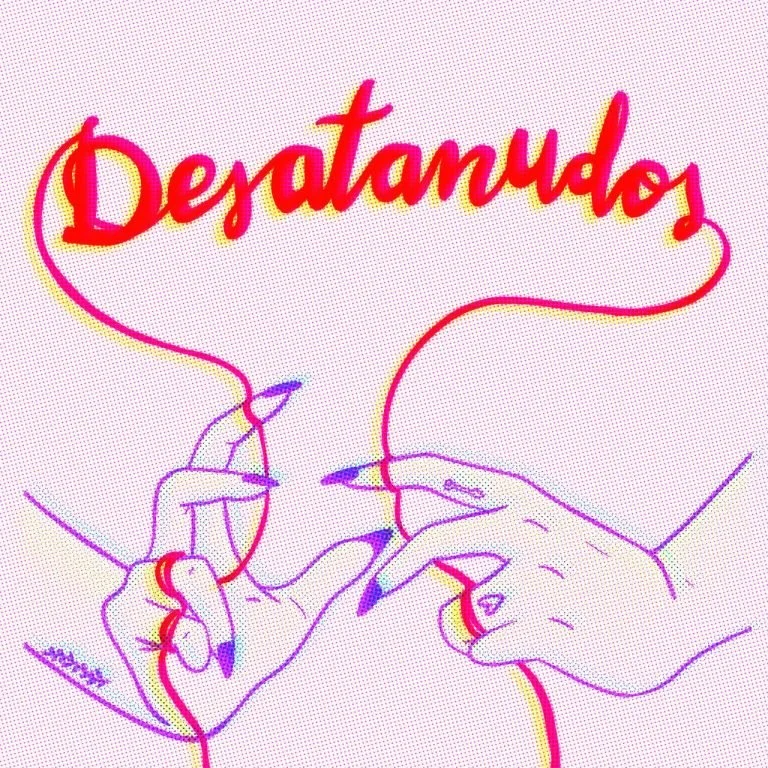Desatanudos: let’s think about feelings
In this short series, I explore one human emotion per episode from a philosophical perspective. The sources I use come from disciplines as diverse as psychology, anthropology, literature, history, neuroscience, and philosophy. Produced by Ezequiel Vila. In Spanish.
Jealousy
Bibliography
“Jealous thoughts” by Jerome Neu, in Amélie Rorty’s Explaining Emotions (1980).
“Psychosocial Aspects of Jealousy: A Transactional Model” by Robert Bringle, in Peter Salovey’s The Psychology of Jealousy and Envy (1991).
“Modes of Response to Jealousy-Evoking Situations” by Jeff Bryson, in Peter Salovey’s The Psychology of Jealousy and Envy (1991).
“The Organization of Jealousy Knowledge: Romantic Jealousy as a Blended Emotion” by Don Sharpsteen, in Peter Salovey’s The Psychology of Jealousy and Envy (1991).
Surprise
Bibliography
Cicero’s Tusculanae Disputationes III.
Unmasking the Face: a Guide to Recognizing Emotions from Facial Clues (1975) by Paul Ekman & Wallace Friesen.
“Infants’ Responses to Strangers: Midget, Adult and Child” by Jeanne Brook & Michael Lewis (1976).
“A Developmental Sequence in the Comprehension of Emotions: Intensity, Multiple Emotions, and Valence” by Maxine Wintre & Denise Vallance (1994).
Disgust
Bibliography
Plato’s Republic IV.
La Historia General de las Cosas de Nueva España (1569) by Bernardino de Sahagún.
The Expression of the Emotions in Man and Animals (1872) by Charles Darwin.
“Evidence for universality and cultural variation of differential emotion response patterning” by Klaus R. Scherer & Harald G. Wallbott (1994).
“Neural basis of disgust perception in racial prejudice” by Yunzhe Liu, Wanjun Lin, Pengfei Xu, Dandan Zhang & Yuejia Luo (2015).
Shame
Bibliography
The Expression of the Emotions in Man and Animals (1872) by Charles Darwin.
“Shame and Learning” by Paul Shane (1980).
Shame, the Power of Caring (1980) by Gershen Kaufman.
“Shame in Two Cultures: Implications for Evolutionary Approaches” by Daniel Fessler (2004).
Aristotle on Shame and Learning to be Good (2020) by Marta Jimenez.
Fear
Bibliography
“Hoshr k'lich choucha, canto femenino para apaciguar a Xalpen” sang by the selk’nam Lola Kiepja (1982).
“Fear” by David Konstan, in his The Emotions of the Ancient Greeks: Studies in Aristotle and Classical Literature (2007).
El Mundo Espiritual de los Selk’nam (2008) by Martín Gusinde.
“You are what I feel: A test of the affective realism hypothesis” by Jolie B. Wormwood, Erika H. Siegel, Justin Kopec, Karen S. Quigley & Lisa Feldman Barrett (2019).
Frustration
Bibliography
Homer’s Odyssey XI and Epicurus’ Letter to Menoeceus.
“Physiological and emotional reactivity to learning and frustration” by Michael Lewis, Daniel F. A. Hitchcock & Margaret W. Sullivan (2004).
The Development of the Person: the Minnesota Study of Risk and Adaptation from Birth to Adulthood (2005) by Alan Sroufe.
The Fundamentals of Brain Development: Integrating Nature and Nurture (2008) by Joan Stiles.
“Fortune Favors the Bold ("and the Italicized"): Effects of Disfluency on Educational Outcomes” by Connor Diemand-Yauman, Daniel M. Oppenheimer & Erikka B. Vaughan (2011).
“Trends in end-of-life practices before and after the enactment of the euthanasia law in The Netherlands from 1990-2010: a repeated cross-sectional survey” by Bregje D. Onwuteaka-Philipsen, Arianne Brinkman-Stoppelenburg, Corine Penning, Gwen J. F. de Jong-Krul, Johannes J. M. van Delden & Agnes van der Heide (2012).
Anger
Bibliography
Plato’s Republic II and Aristotle’s Nicomachean Ethics VII.
”The Uses of Anger: Women Responding to Racism” speech by Audre Lorde (1981).
Unnatural Emotions: Everyday Sentiments on a Micronesian Atoll & their Challenge to Western Theory (1988) by Catherine A. Lutz.
“Beyond Valence: Toward a Model of Emotion-Specific Influences on Judgement and Choice” by Jennifer S. Lerner & Dacher Keltner (2000).
Upheavals of Thought: The Intelligence of Emotions (2001) by Martha Nussbaum.
“Emotion Attribution in Intermittent Explosive Disorder” by Michaela S. Patoilo, Mitchell E. Berman & Emil F. Coccaro (2021).
